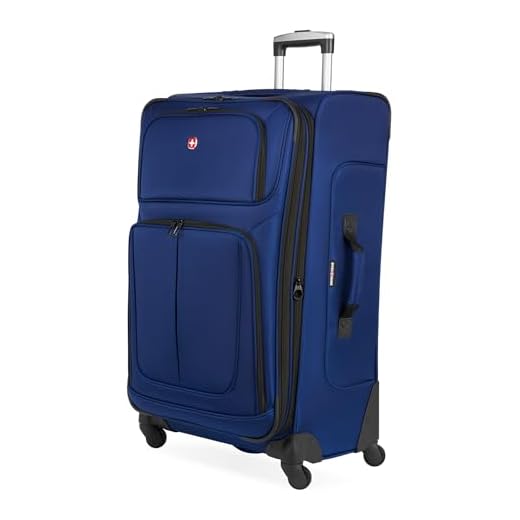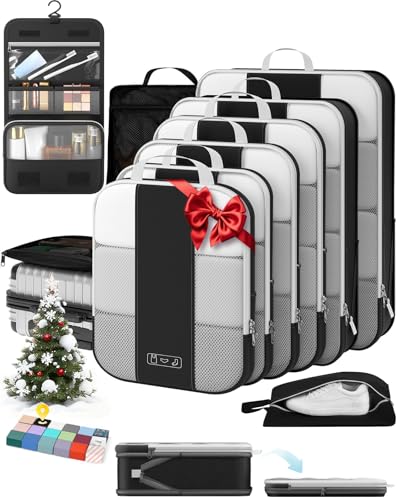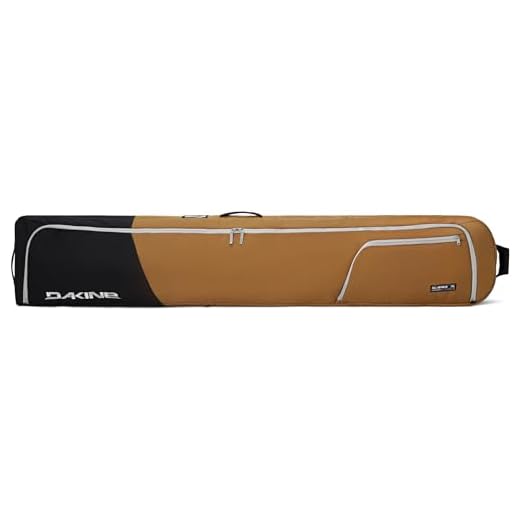





Answer: Most air carriers apply explicit baggage fees; prepay checked-bag allowance online 24–72 hours before departure to cut costs by roughly 10–40% compared with airport-counter prices and keep one compliant personal item onboard to avoid cabin-bag costs.
Typical pricing on US domestic routes: first checked piece $30, second $40. Overweight penalties commonly: 51–70 lb (23–32 kg) ≈ $100, 71–100 lb ≈ $200. Oversize surcharges for linear dimensions >62 in (158 cm) typically range $100–$200. If a cabin item is assessed, expect a $30–$80 fee depending on carrier and when purchase occurs.
International long-haul tickets on many legacy carriers include one or two checked pieces on standard economy; “basic economy” or light fares frequently exclude checked allowance. Regional and low-cost operators often differentiate strictly by fare class and booking channel, with dynamic pricing that increases closer to departure.
Actionable recommendations:
1. Weigh and measure bags at home using a luggage scale and tape measure; target ≤50 lb (23 kg) and ≤62 in (158 cm) to avoid common surcharges.
2. Buy bundles or select a fare that includes checked pieces when planning more than one bag–bundling usually costs less than paying single-piece fees at the gate.
3. Use a travel credit card offering complimentary checked-piece benefit or elite status perks to eliminate one or two fees per passenger.
4. Pay any required baggage fees online during check-in 24–72 hours prior; rates posted at ticketing or kiosks frequently exceed online prices.
5. Shift heavy items into a carry-on and a personal item that meet carrier size limits; use compression cubes and remove nonessential bulk to avoid an extra checked piece.
6. When transporting bulky equipment, compare ground shipping rates versus overweight/oversize surcharges–shipping can be cheaper and less risky than paying premium airport penalties.
Do air carriers apply fees on baggage?
Pay online 24–72 hours before departure to cut checked-bag fees by up to 50%.
Typical U.S. domestic fees: first checked bag $30–$35; second checked bag $40–$60; overweight penalties $75–$200 depending on excess weight; oversized surcharges $100–$400 depending on dimensions. Paying at the gate usually costs $10–$40 more than prepayment during booking.
Which ticket types include baggage allowance
Basic-economy tickets often permit only a personal item; full-sized carry-ons may trigger a checked-bag fee at boarding. Main-cabin and premium fares commonly include at least one checked piece on international routes and on select higher-priced domestic tickets. Low-cost carriers typically impose fees across most fare buckets, with steep increases close to departure.
Practical steps to avoid extra costs
Use co-branded cards with the specific carrier to receive one or two complimentary checked bags; benefits typically apply to the primary cardholder and eligible companions listed on the same reservation. Check baggage allowance while booking, add checked pieces early, and prepay any excess weight online.
Weigh suitcases at home; shift heavy items into a permitted carry-on personal item; measure linear dimensions to stay below 62 inches (158 cm). If transporting sports equipment or musical instruments, confirm special-item rules and prepay any required handling to save money.
Typical fees: carry-on vs checked bags by route and carrier
Carry a compliant personal item plus one standard carry-on on U.S. legacy carriers; first checked piece commonly costs $30–$35, second $40–$50, with lower online advance rates than at the airport.
Fee ranges by route and carrier type
- U.S. domestic (legacy carriers): first checked piece $30–$35, second $40–$50; main-cabin carry-on usually included except on restricted basic fares where only a personal item is allowed.
- U.S. low-cost operators: basic fares often exclude full-size carry-on; personal item free. Typical carry-on fees $30–$65, first checked piece $30–$60 depending on booking timing.
- Southwest-style policies: two checked pieces included at no extra cost; standard weight limit ~50 lb (23 kg) per piece.
- Short-haul Europe: legacy carriers often include one small carry-on; checked fees typically €15–€60 when purchased online. Low-cost European operators impose strict size limits and checked fees that rise steeply at the airport.
- Transatlantic / long-haul legacy: many fare classes include one checked piece in economy; when not included, expect $60–$100 for the first checked item. Business / premium cabins usually include two checked pieces, each up to 32 kg (70 lb).
- Long-haul low-cost and niche long-haul operators: both carry-on and checked items usually billed separately; aggregate cost can exceed $100 per bag on some sectors.
Size, weight limits and common penalty amounts
- Carry-on dimensions: typical allowance 22×14×9 in (56×36×23 cm); personal item ~18×14×8 in (45×35×20 cm).
- Checked weight: standard economy limit 23 kg (50 lb); premium cabins often 32 kg (70 lb). Linear dimension limit 62 in (158 cm).
- Overweight penalties: $75–$200 per bag depending on excess weight band and route.
- Oversize penalties: $100–$400 per piece depending on dimensions and operator.
Practical steps to reduce total baggage costs:
- Prepay online during booking or before airport check-in; online rates typically 20–50% lower than counter prices.
- Use a co-branded travel card or elite status that includes complimentary checked pieces.
- Consolidate items into one compliant carry-on when travelling short routes; verify allowed sizes at the carrier’s website and weigh bags at home.
- Purchase a durable trunk or checked bag with internal compression and external wheels to maximize permitted weight usage; consider best luggage store in los angeles for trunk when upgrading gear.
Which fares, credit cards and elite tiers waive baggage fees
Recommendation: Buy a premium-cabin ticket or select a bundled fare, or use a qualifying co-branded card or elite status to secure at least one complimentary checked bag on most carriers.
Fare classes that include waived baggage fees
Premium cabins (business, first, premium economy) routinely include one or more free checked pieces on domestic and international itineraries. Many airlines sell bundled economy fares labeled “Main,” “Standard” or “Plus” that include the first checked bag; fares marketed as “Basic” or “Basic Economy” typically exclude checked-bag allowance. Long-haul international premium and business tickets commonly include two checked pieces and higher weight limits.
Co-branded cards and elite tiers that remove fees
Co-branded cards frequently grant a first checked-bag waiver to the primary cardholder plus companions booked on the same reservation. Common examples: Delta SkyMiles American Express cards (Gold, Platinum, Reserve), United Explorer and higher-tier United co-branded cards, American AAdvantage personal cards issued by Citi or Barclays, Alaska’s Visa Signature, JetBlue Plus, and many Southwest Rapid Rewards cards (note: Southwest includes two free checked pieces on all fares). Exact companion allowances and eligible fare classes are defined in each cardholder agreement.
Frequent-traveler status also delivers baggage waivers. Typical pattern: entry-tier elites receive one free checked piece, mid-tier elites get one to two pieces with higher weight allowances, and top-tier members receive two or three pieces plus enhanced size/weight limits. Alliance-level status (Star Alliance, oneworld, SkyTeam) often carries through when flying on partner flights booked in eligible fare buckets.
How to confirm: check the ticket’s baggage allowance in the fare rules, read the co-branded card benefits guide, and review elite terms on the carrier’s website. Add the co-branded card number to the reservation or present it at check-in when using a card benefit; retain documentation of elite status in your booking. When in doubt, call the carrier’s reservations line or use online check-in to verify the allowance before arriving at the airport.
How to minimize baggage fees when booking, checking in and packing
Prepay checked bags online; typical savings: $10–$40 compared with airport kiosk rates.
Booking
When booking, add the expected checked piece at purchase stage so total trip cost reflects bag fees. Many carriers display add-on prices during seat selection; compare final fares rather than base fare alone. Low-cost operators often sell cabin-carry and checked as separate add-ons: expect cabin-carry fees $30–$60 domestic, first checked piece $30–$35 on major US operators, second piece $40–$45. Ultra-low-cost operators sometimes bill cabin-carry equal to or higher than checked – read the published fee table before payment.
Select a fare that bundles a checked piece if trip length exceeds three nights or if bulky items are unavoidable; bundled pricing can be cheaper than buying single add-ons later.
Check-in and packing
Weigh each bag at home with a digital luggage scale; target 22 kg (48 lb) or less to stay under the common 23 kg (50 lb) threshold that triggers overweight penalties. If a bag exceeds the weight limit, redistribute dense items into the cabin piece or a personal item. Use the carrier app to add prepaid allowances during online check-in; airport kiosks and gate transactions are usually pricier.
Choose lightweight suitcases and soft-sided bags to gain usable volume. Use compression cubes, roll garments, and pack shoes and heavy items near the suitcase base to balance weight. Swap full-size liquids to travel-size or solid alternatives. Typical cabin-dimensions to respect: 22×14×9 in (56×36×23 cm); personal item must stow under the seat. Shift bulky items into a capacious personal item such as best messenger bag cyclist to keep them in cabin carry and avoid checking another piece.
If projected excess and overweight penalties exceed $100, compare courier or postal shipping rates; long-haul door-to-door options sometimes undercut excess baggage penalties on international itineraries.
Extra fees: overweight, oversized, sports equipment and special items
Prepay overweight and oversize fees online; typical savings 30–60% versus the airport desk and fewer surprises at the gate.
Weight thresholds and common fee bands: standard checked allowance in economy usually 23 kg (50 lb); business/upper cabins commonly 32 kg (70 lb). Overweight band 23–32 kg typically incurs a fee of US$100–250 on domestic routes and US$150–350 on international routes; items above 32 kg often must move as air cargo with freight rates starting near US$200–$500 plus handling. Measure weight at home with a luggage scale and redistribute contents between bags to avoid the 23–32 kg bracket.
Dimensional limits: the usual linear-size limit is 158 cm (62 in). Any bag or case with dimensions above that typically attracts an oversize fee ranging US$100–400 depending on carrier and route; ultra-oversize pieces (golf bags, large crates) may require cargo booking and special handling. Use soft-sided bags only when piece compression can bring linear dimensions under 158 cm.
Sports gear
Bicycles: fees commonly US$50–200. Pack in a hard case or purpose bike box, remove pedals, turn and secure handlebars, deflate tires to ~40% pressure, and protect the frame. Photodocument condition before drop-off; retain receipts for third-party insurance claims. Prebook bike space with the operator; walk-up acceptance may be denied when capacity is limited.
Skis and snowboards: domestic fees often US$30–75, international US$75–150. Use a padded ski bag, secure bindings, and tape sharp edges. Surfboards: expect US$75–200 per board depending on length; use a reinforced travel bag and remove or pad fins. Helmets and boots: pack inside the board/ski bag to avoid extra-piece assessments.
Special items, fragile gear, animals and batteries
Musical instruments: small instruments that meet carry-on size can occupy cabin space without extra cost if they fit overhead or under-seat. Large instruments require either an extra seat at full fare or acceptance as checked/special-handled freight; fees vary widely (US$0–$400) and advance notice is recommended. Hard cases with internal padding reduce damage risk; keep instrument documentation and serial numbers with you.
Service animals usually travel in-cabin under separate rules; emotional support animal policies differ by operator and often require documentation and advance approval. Pet transport in-cabin typically costs US$75–200; cargo/manifested pet movement ranges US$200–1,000 depending on size, route and crate specifications. Always book pet space ahead and verify crate dimensions and ventilation standards.
Lithium batteries and battery-powered devices: spare lithium-ion batteries must be transported in the cabin only. Limits: ≤100 Wh OK; 100–160 Wh require operator approval; >160 Wh prohibited on passenger aircraft. Secure terminals, pack batteries individually in plastic sleeves, and never stow spares in checked pieces. Mobility aids with batteries may travel checked if batteries are removed or meet safe-transport procedures; notify the operator in advance.
Packing and pre-travel actions that reduce extra fees: weigh and measure at home; prepay online; split heavy items across two bags where possible; use hard cases for fragile or high-value gear; label cases clearly and include contact details inside; photograph contents and external condition at drop-off. Contact the carrier ahead to reserve space for oversize items or sports gear and request special-handling tags at check-in.
See also how to keep dog from digging under wood fence.









